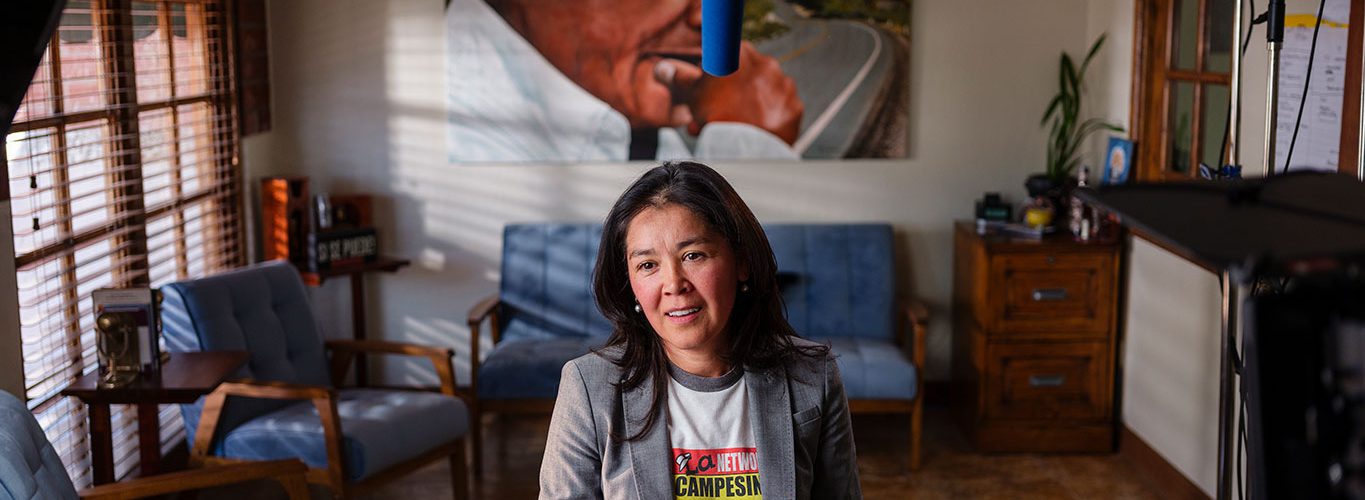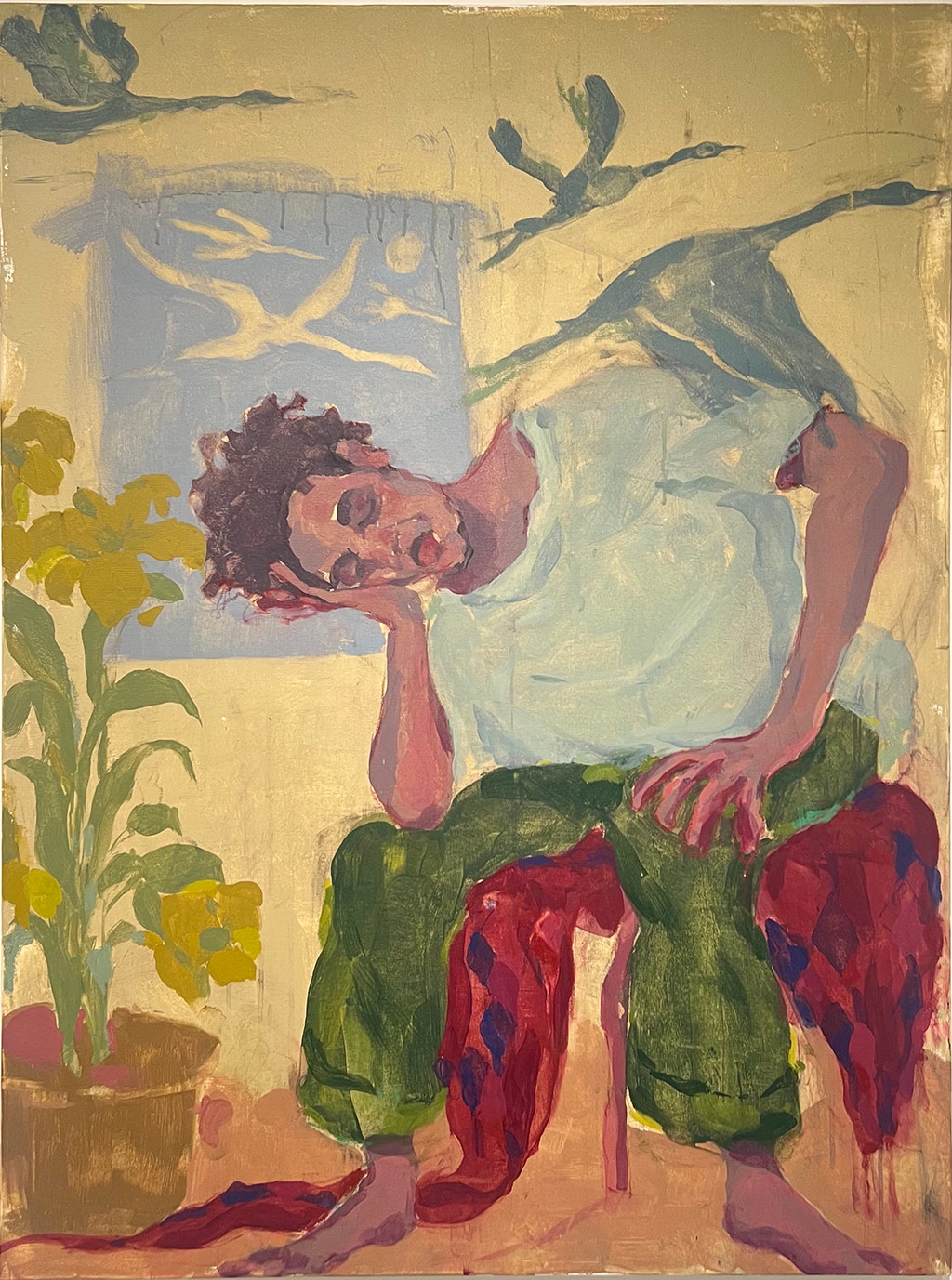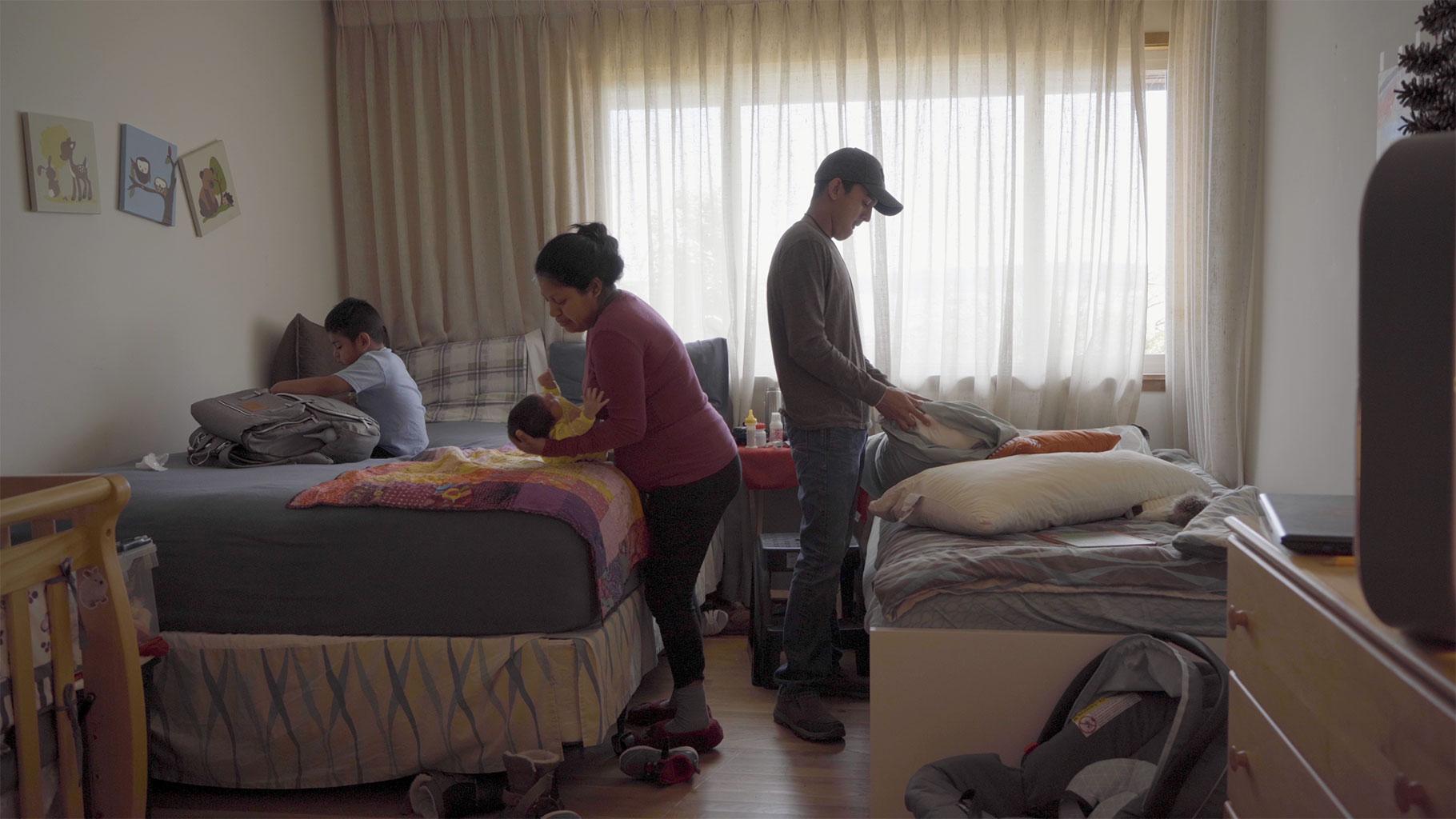
Maria Barquin, Program Director, Radio Campesina (Photo Credit: Roberto “Bear” Guerra; Courtesy of Quiet Pictures)
A Potentially Election-Swaying Demographic
With over 31 million eligible voters, Latine voters are now the second-largest voting block within the United States. Their populations are highest in states like California, Texas, and Florida – but they also hold sway in the crucial swing states of Wisconsin, Michigan, Pennsylvania, North Carolina, Nevada, Arizona, and Georgia. Some analysts believe that Latine voters could decide the outcome of the 2024 election between Democratic candidate, current Vice President Kamala Harris, and Republican candidate, former President Donald J. Trump.
“One of the first things we discussed was how to capture the spectrum of Latine voters all across the country. Is it even useful to think about us as a voting bloc?” asks Latine Vote 2024‘s New York-based producer Marcia Robiou. “We are so diverse, not just racially, but also geographically, politically and every way you can possibly think of.”
“At the end of the day, some people are going to be left out because we only have an hour,” she continues.
According to Latino Vote 2024, Latine voters comprise 14.7% of the electorate – with about 17.5 million expected to vote and about 20% of those individuals voting for the first time in 2024. Yet according to Robiou, Latine voters are not easily predictable from election cycle to election cycle.
“Latine voters are very independent or affiliate more with the independent party than a lot of other groups, ethnic or racial groups, so they really focus on the policy – and the specific candidate, not so much,” explains Robiou. “[They] don’t adhere as much to party loyalty.”
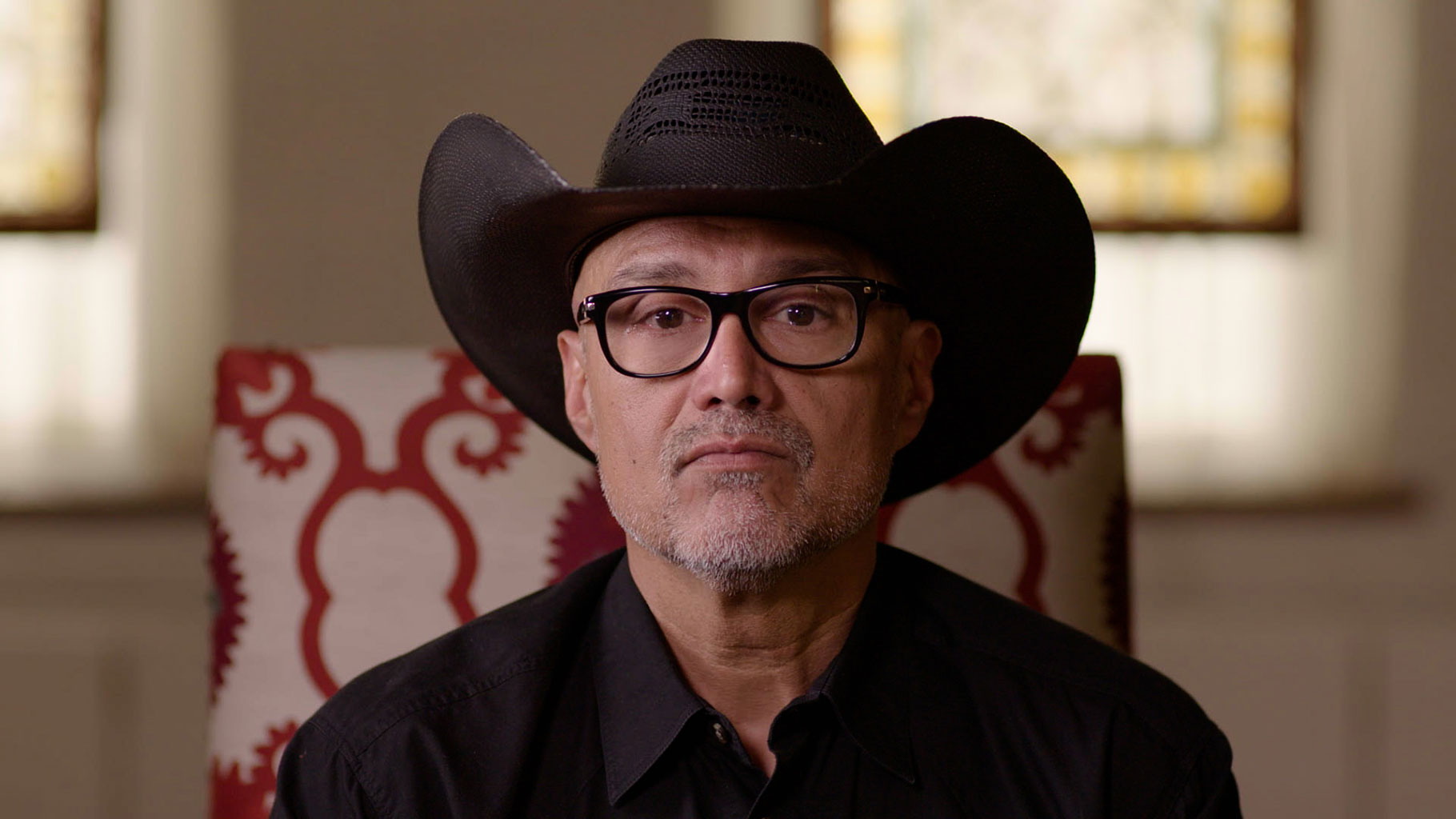
Chuck Rocha, Political Consultant and Former Sr. Advisor to Bernie Sanders (Photo Credit: Jerry Risius for Quiet Pictures; Courtesy of Quiet Pictures)
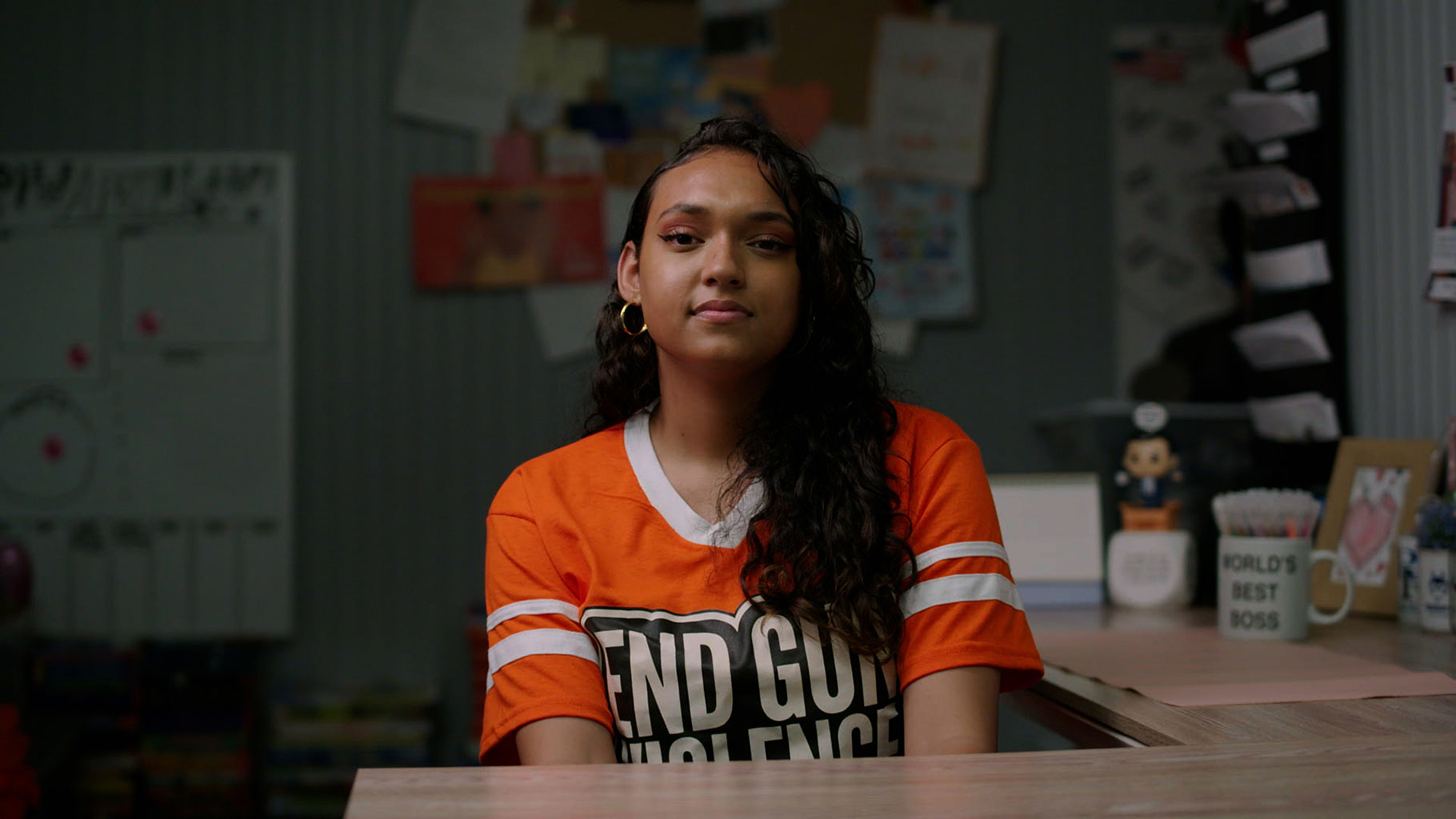
Zaleeae Sierra, Youth Director of the organization Promise Neighborhoods (Photo Credit: Carissa Henderson for Quiet Pictures; Courtesy of Quiet Pictures)
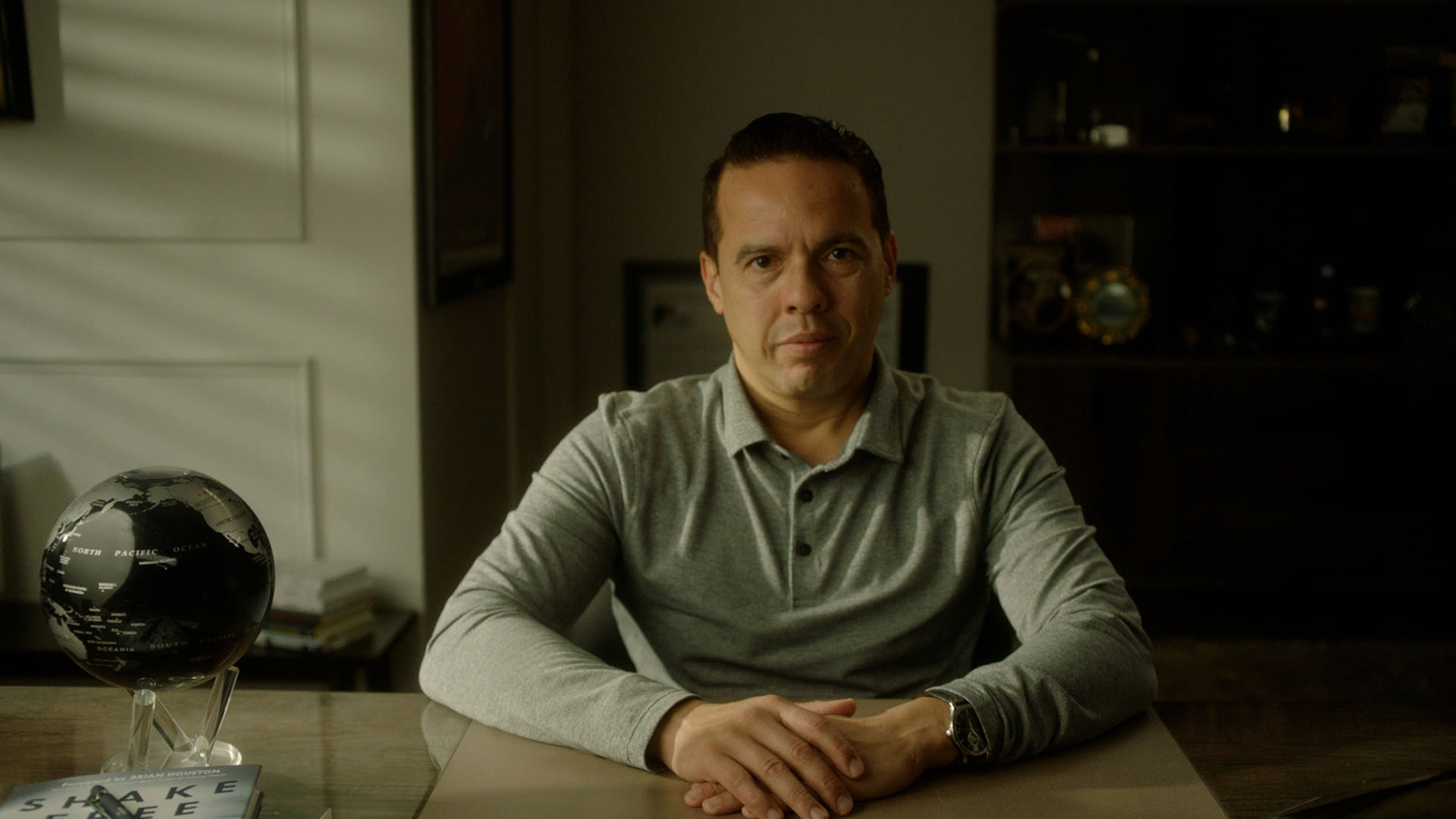
Samuel Rodriguez, Pastor, New Season Church (Photo Credit: Victor Tadashi Suarez for Quiet Pictures; Courtesy of Quiet Pictures)
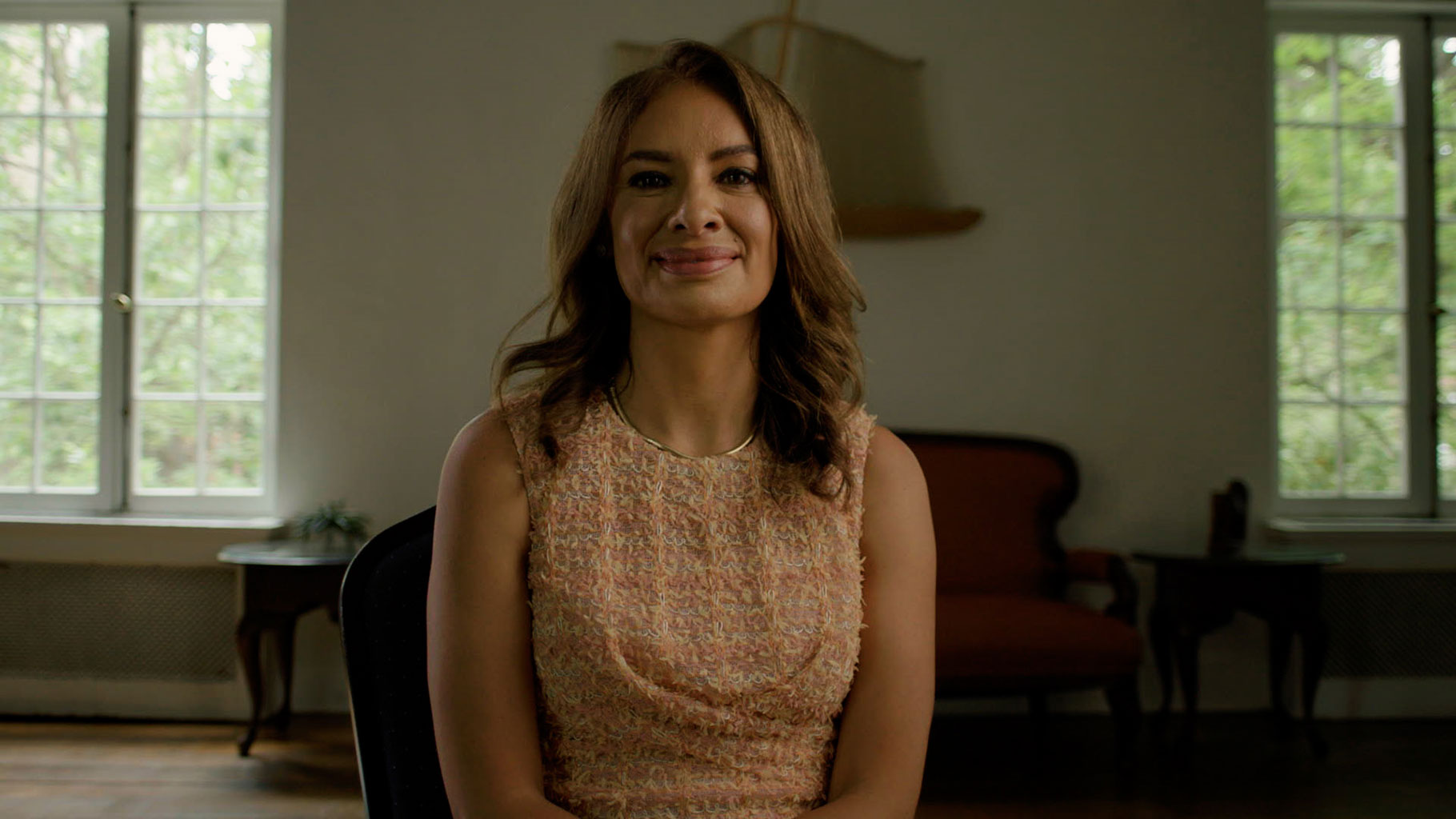
Maria Teresa Kumar, President of Voto Latino (Photo Credit: Fernando Rocha for
Quiet Pictures; Courtesy of Quiet Pictures)
Finding the Correct Balance & Connections
To ensure that the documentary’s subject matter was relevant to the current election cycle, Latino Vote 2024 relies on polls and research to center top issues of importance to Latine voters. The film opens with interviews of organizers and residents from Allentown, Pennsylvania, where challenges of housing, affordability, gentrification, and other struggles of the working class are ever-present.
“The top [issue] over and over again was the economy and inflation and rising housing costs,” says Robiou. “For the most part, the people I spoke to were very pragmatic about that.”
She continues, “Regardless of what political party they’re affiliated with, a lot of folks I spoke to felt that both parties were being too extreme on social cultural issues, but we’re not advancing any type of coherent policy on the economy, for example, or even immigration.”
On the topic of abortion, Arizona is offered as a case study, as the state currently bans abortions after 15 weeks of pregnancy. Voters will decide in November 2024 whether to expand or protect abortion rights in the state constitution.
The immigration debate is partially framed through religion, as the documentary follows church leaders who are devout and family-oriented, yet represent perspectives on both sides of the aisle. Reverend Gabriel Salguero, Lead Pastor of the Gathering Place in Orlando, Florida, preaches against those who do not welcome foreigners, while Reverend Samuel Rodriguez, Lead Pastor of New Season Church in Sacramento, California, was tapped by former President Trump to be the first such Latino individual to speak at Trump’s Presidential inauguration in 2017.
Such subject matter is made all the more complex when one considers that not all Latine voters are immigrants or even the children of immigrants, which is often the stereotype. Many are U.S. citizens who have been naturalized or were born in the country, sometimes with a family line that has been in the States for generations.
The filmmakers behind Latino Vote 2024 also very much reject that current media narrative that Latine voters are overly Democratic or Republican. One palpable interview segment features Clarissa Martinez de Castro, Vice President of the Latino Vote Initiative UnidosUS, speaking about the current statistics and historical context.
“If you look at Latinos historically, about two-thirds of their support ended up going to Democrats and about one-third goes to Republicans,” explains Martinez de Castro.
While Latine voters’ party alignments have ebbed and flowed, their recent “return” back to the Republican party is not particularly exceptional, according to the long-term data. A visual graph in Latino Vote 2024 corroborates the history. In 1980, the Latine community voted 56% for Carter and 35% for Reagan; in 1992, 61% for Clinton and 25% for Bush; in 2040, 58% for Kerry and 40% for Bush; in 2008, 67% for Obama and 31% for McCain. Most recently, in 2020, they voted 61% for Biden and 36% for Trump.
“We try to keep those historical context in mind, so we don’t make the mistake of… following the news cycle in this idea that there is this rush of Latine folks to Trump or to the Republican Party, but we do want to represent that,” comments Robious.
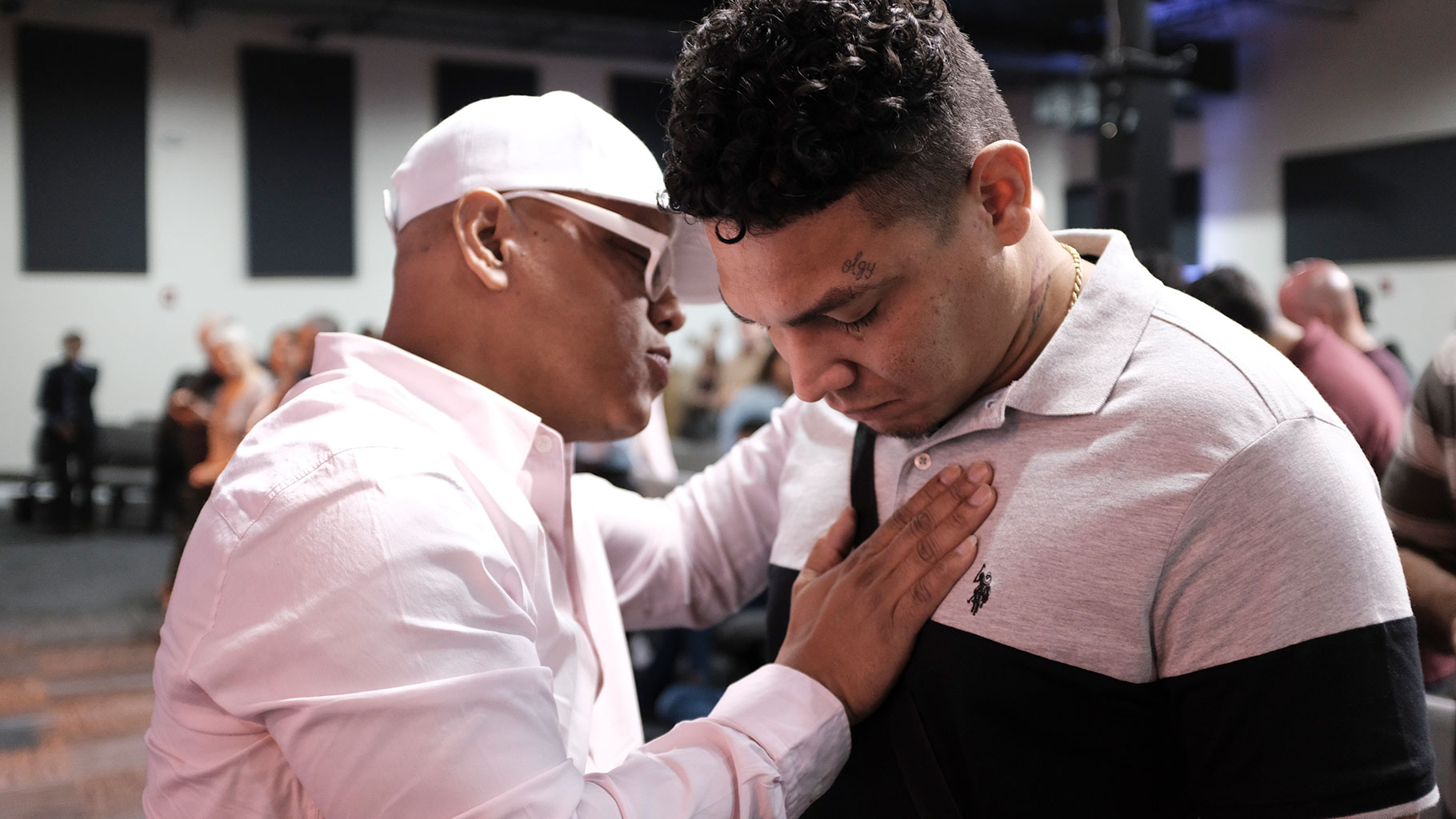
Moment from Rev Gabriel Salguero’s church, The Gathering, in Orlando, FL (Photo Credit: Bernardo Ruiz; Courtesy of Quiet Pictures)
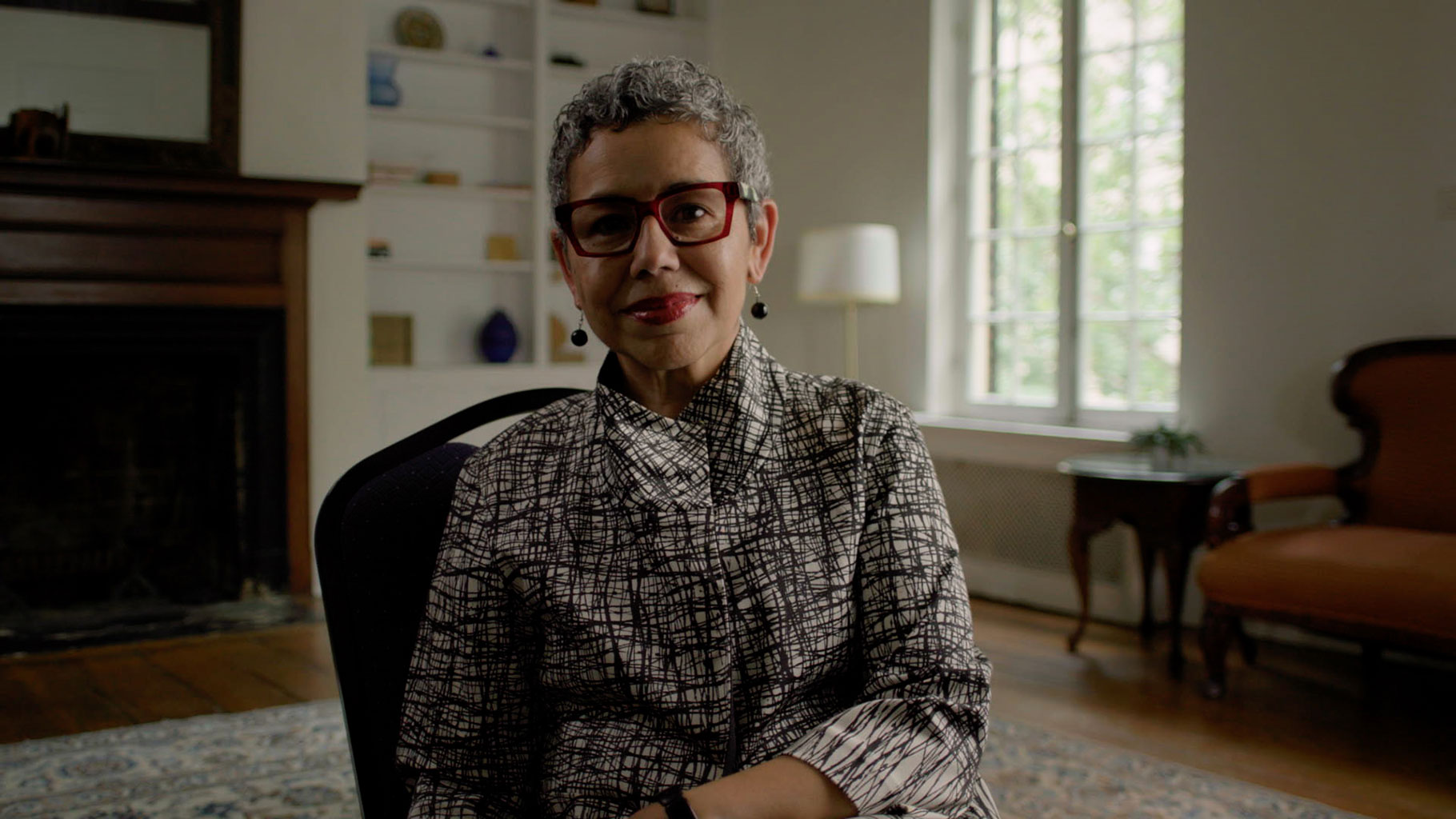
Clarissa Martinez De Castro, Vice President of the Latino Vote Initiative at UnidosUS (Photo Credit: Fernando Rocha for Quiet Pictures; Courtesy of Quiet Pictures)
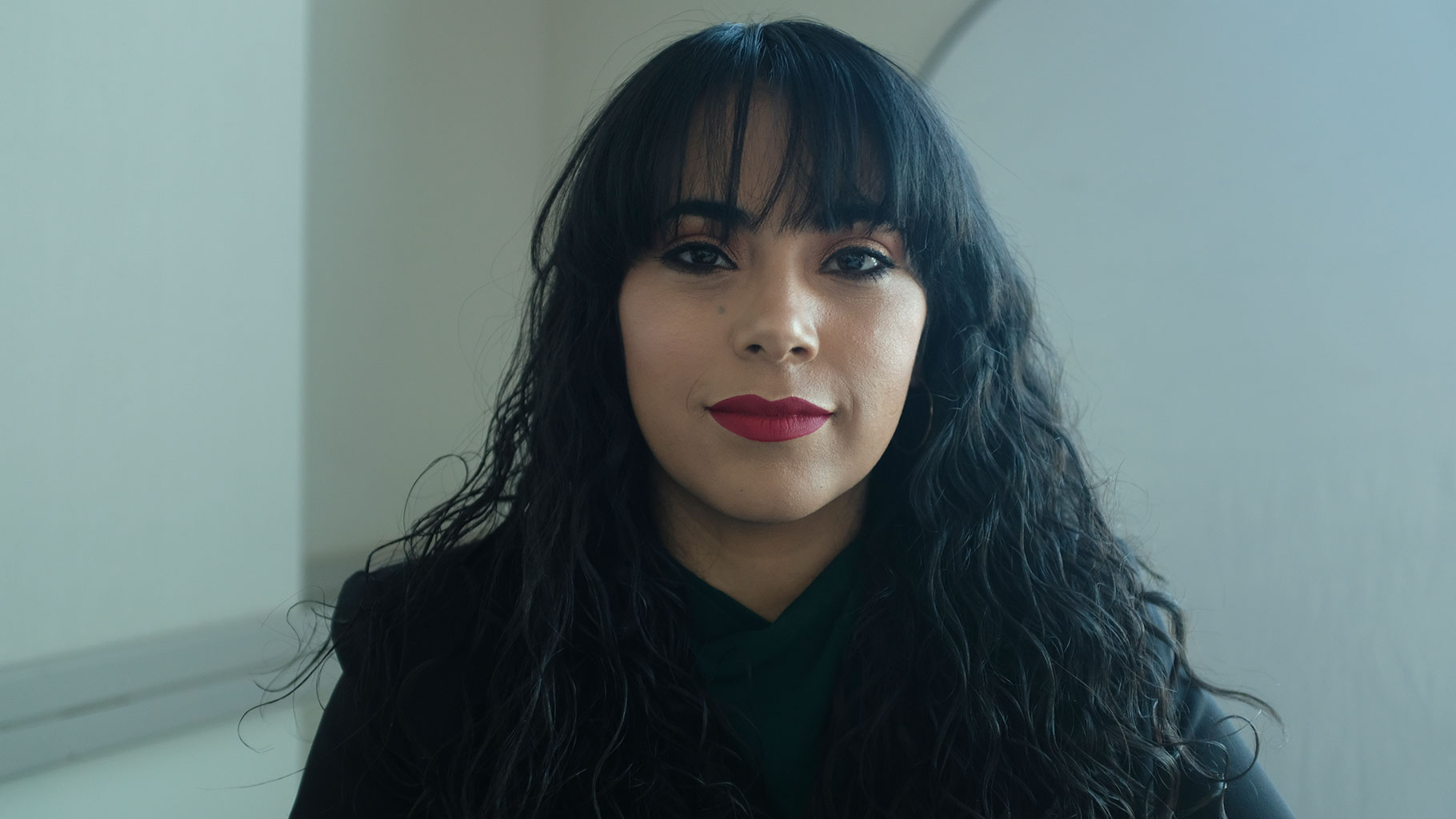
Former Texas Congresswoman Mayra Flores (Photo Credit: Bernardo Ruiz; Courtesy of Quiet Pictures)
Adapting to a Chaotic Election Cycle
Other crucial moments in the current election cycle are represented by footage from the Republican National Convention (RNC) and Democratic National Convention (DNC). At the RNC, high-profile Latine politicians – such as Texas Senator Ted Cruz and former Texas U.S. Representative Mayra Flores – are seen promoting Trump and speaking to conservative tendencies of Latine culture, in general.
Footage of the DNC came later, as the Latino Vote 2024 filmmakers had to adapt their narrative to the fast-changing and chaotic election cycle. The film was close to its final edit when significant new developments occurred that sent the team back to the drawing board.
“It’s a challenge doing a documentary on something that’s in the news…” says Robiou. “We were pretty close to delivering a cut when the assassination attempt on Donald Trump happened, and then shortly after that, Biden stepped down, and we were wrapping production.”
Because the final product needed to reflect Vice President Harris’ sudden ascension as the Democratic nominee, the filmmakers had to do a lot of new shoots, and tough decisions needed to be made in the final edit.
“A lot was left on the cutting room floor…” says Robious. “We had to do new interviews with folks now that Harris was at the top of the ticket, [because for] a lot of our film, they were talking about Biden versus Trump.”
In addition to the documentary, the team had enough additional material to create 10 other short films – and under the guidance of PBS, they focused the smaller segments on the stories of young voters and first-time voters. The first one of the ten released follows a young first-time voter in Nevada, who director Bernardo Ruiz had also filmed in the documentary’s 2020 installment.
“We have footage of him when he was 15-years-old and looks very different. Now he’s 18 and voting for the first time,” explains Robiou. “He’s an organizer, or his mom is an organizer, and seeing his political evolution is really interesting… he’s very well-spoken – way better spoken than I was at 18 years old.”
The remaining shorts are focused on different types of Latine voters, whether they be Indigenous, Afro-Latina, young MAGA supporters, or individuals at a Puerto Rican auto body shop. Overall, the multiple experiences portrayed by the breadth that is Latino Vote 2024 performs a crucial task in providing an in-depth yet nuanced snapshot of hard-to-define Latine voters, during a U.S. election of great potential consequence.
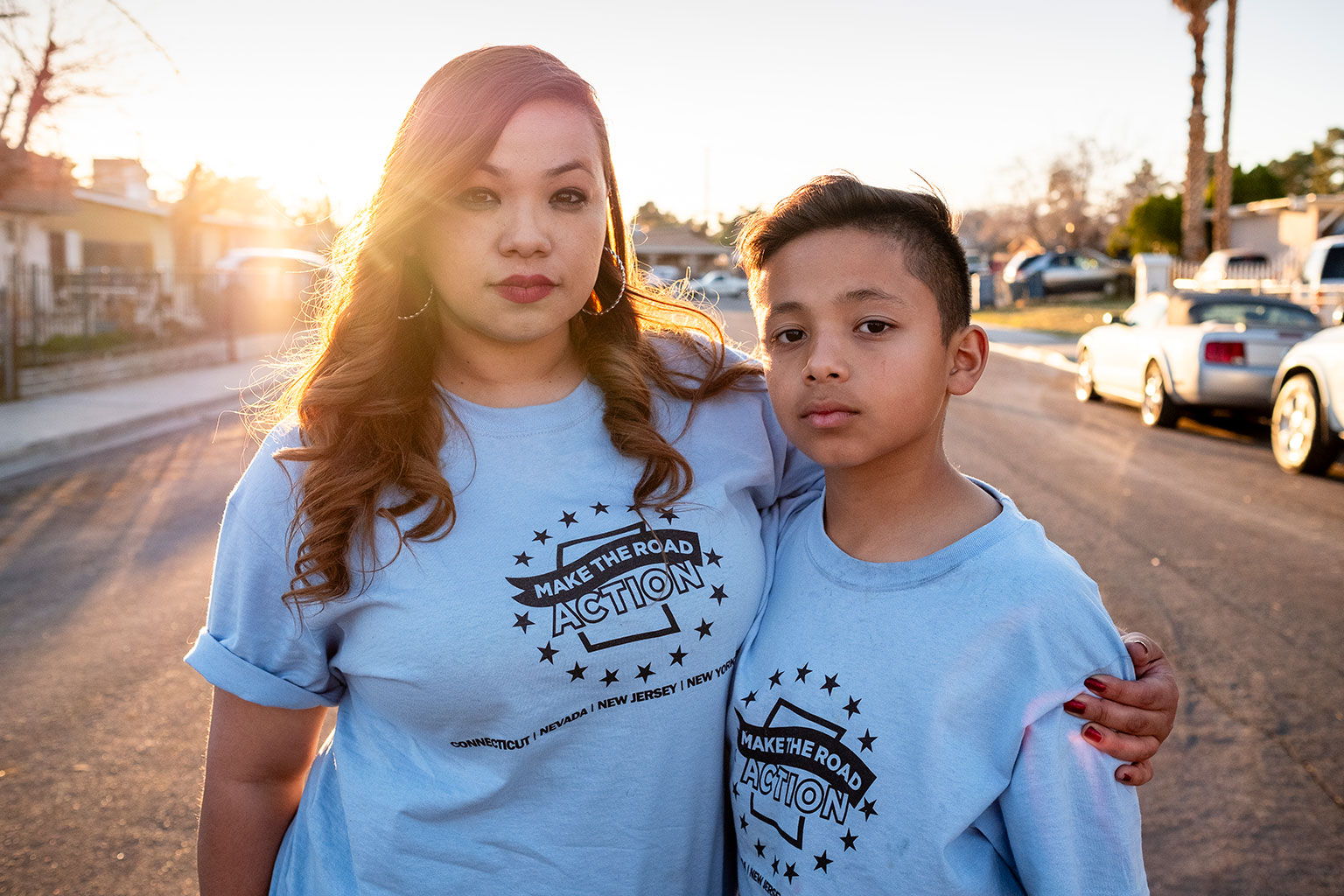
Organizer Audrey Peral and son Francisco in 2020 (Photo Credit: Roberto “Bear” Guerra; Courtesy of Quiet Pictures)
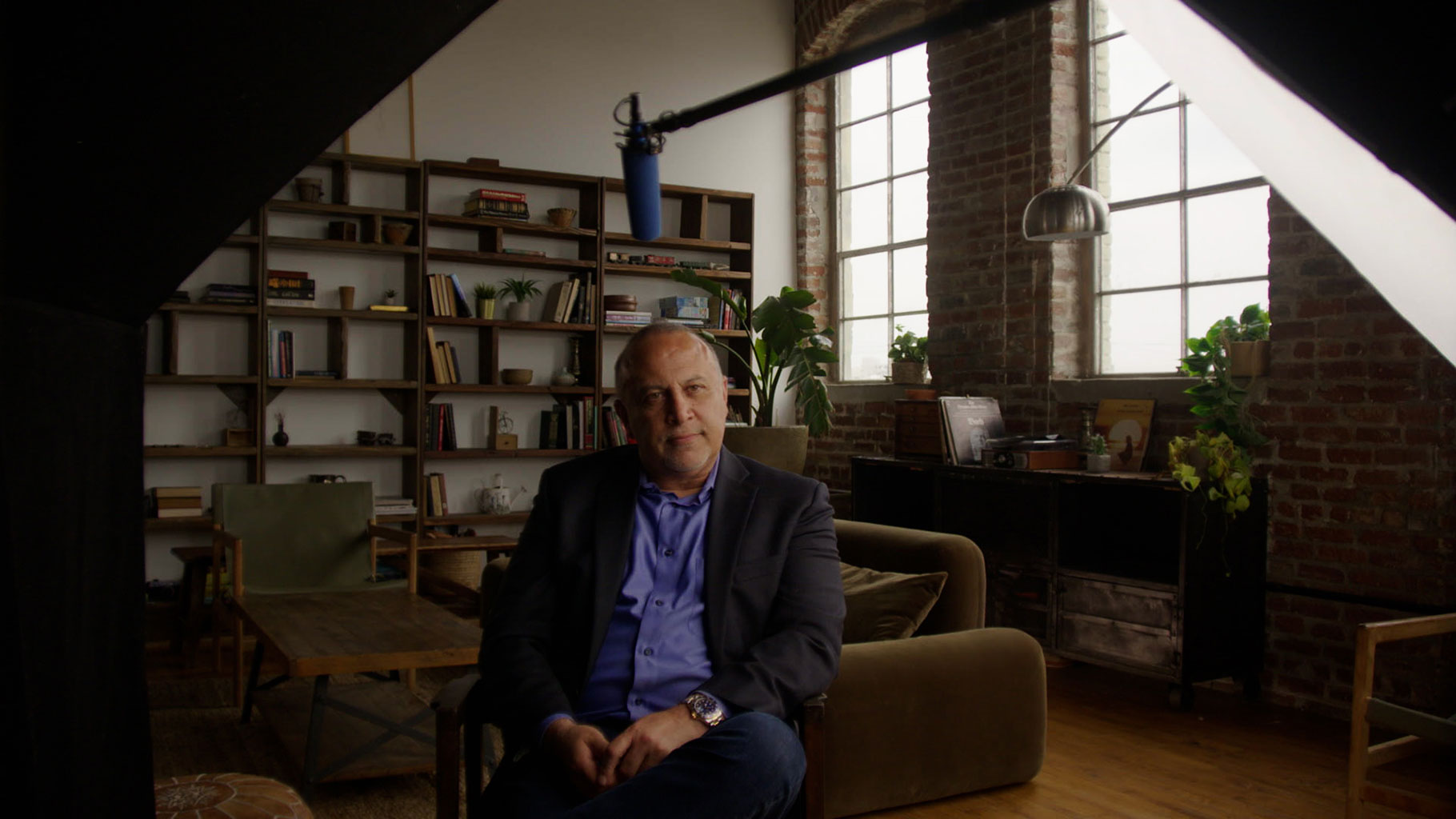
Mike Madrid, Political Consultant and Co-Founder of The Lincoln Project (Photo Credit: Antonio Cisneros for Quiet Pictures; Courtesy of Quiet Pictures)
Ω

